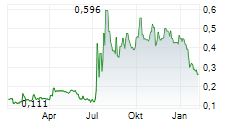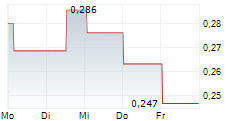Stockholm, April 16, 2025 - Oncopeptides AB (publ) (Nasdaq Stockholm: ONCO), a biotech company focused on difficult-to-treat cancers, today announces the publication of new real-world data that further support the effectiveness and tolerability of melflufen, branded in Europe as Pepaxti, in patients with relapsed, refractory multiple myeloma (RRMM). The data were presented in an abstract from the University of Catania, Italy. It highlights treatment outcomes in a single-center real-world setting.
The retrospective analysis included eight triple-class refractory RRMM patients who had received a median of 3.5 prior lines of therapy. Notably, several patients presented with high-risk features, including extramedullary disease. Despite this, treatment with Pepaxti in combination with dexamethasone showed an overall response rate (ORR) of 37.5%, with partial responses seen even among patients with advanced disease manifestations.
"Our experience adds to the growing body of real-world evidence on melflufen in relapsed and refractory myeloma. Even in a high-risk patient cohort, we observed encouraging disease control with a manageable safety profile," says Dr. Etta Conticello, Division of Hematology, Azienda Policlinico-S. Marco, University of Catania.
"These real-world findings provide further support for Pepaxti's potential benefit in heavily pretreated patients with limited treatment options, including those with aggressive disease phenotypes," says Stefan Norin, Chief Medical Officer at Oncopeptides. "Importantly, the outcomes align with the results of our HORIZON trial, reinforcing the clinical value of Pepaxti across both trial and real-life settings."
The data underline Pepaxti's role as a viable treatment option for patients with advanced RRMM for patients who have received at least three prior lines of therapy and whose disease has progressed on or after the last therapy.
"It is truly encouraging to see how real-world clinical experience continues to confirm the potential of Pepaxti in treating patients with advanced multiple myeloma. Close collaboration with the medical community is essential as we work to address the significant unmet needs of patients with limited treatment options," says Bruno Bolognese, Head of European Medical Affairs at Oncopeptides.
For more information, please visit oncopeptides.com. You can also find the abstract in the Abstract Book from the European Myeloma Network Meeting.
For more information, please contact:
David Augustsson, Director of IR and Communications, Oncopeptides AB (publ)
E-mail: ir@oncopeptides.com
Cell phone: +46 76 229 38 68
About Oncopeptides
Oncopeptides is a Swedish biotech company focusing on research, development and commercialization of targeted therapies for difficult-to-treat cancers.
The company uses its proprietary Peptide Drug Conjugate platform (PDC) to develop compounds that rapidly and selectively deliver cytotoxic agents into cancer cells. Its flagship drug is currently being commercialized in Europe with partnership agreements for South Korea, the Middle East and Africa and elsewhere.
Oncopeptides is also developing several new compounds based on its two proprietary technology platforms PDC and SPiKE.
The company was founded in 2000, has about 80 employees with operations in Sweden, Germany, Austria, Spain and Italy. Oncopeptides is listed on Nasdaq Stockholm with the ticker ONCO.
For more information see: www.oncopeptides.com
About Pepaxti
Pepaxti® (melphalan flufenamide, also called melflufen) has been granted Marketing Authorization, in the European Union, the EEA-countries Iceland, Lichtenstein and Norway, as well as in the UK. Pepaxti is indicated in combination with dexamethasone for the treatment of adult patients with multiple myeloma who have received at least three prior lines of therapies, whose disease is refractory to at least one proteasome inhibitor, one immunomodulatory agent, and one anti-CD38 monoclonal antibody, and who have demonstrated disease progression on or after the last therapy. For patients with a prior autologous stem cell transplantation, the time to progression should be at least 3 years from transplantation.



